Due to weather conditions, GVSU has moved to REMOTE STATUS for Wednesday, January 21, 2026. Students, faculty and staff, see email for more information.
Upcoming Courses
Teaching a course related to water?
Faculty, use this online form to tell us about your upcoming course related to water so that we can add you to this page.
What's coming up?
Fall 2020
ANT 340 Culture and Environment
ENS 310 How the Biosphere Works
BIO 651 Emerging Issues in Water Resources
DAN 311 Modern Dance Technique
GPY 100 Physical and Environmental Geography
GPY 312 - Urban and Regional Environmental Planning
HSC 201: The Scientific Revolution
HST 370: History of Medicine and Health

ANT 340 Culture and Environment
Elizabeth Arnold
Associate Professor
Anthropology
225 Lake Michigan Hall
[email protected]
(616) 331-8936
ANT 340 Culture and Environment
Course description
Compares different adaptive strategies of cultures from around the world and seeks understanding of ethical and social values different groups have related to the environment. Attention is focused on how humans relied on cultural mechanisms in the past to adapt and change their physical and natural environment. Fulfills Cultures - Global Perspectives. Part of the Sustainability Issue.
Water connections it will explore
This class looks at water as a basic human right and a limited resource that will increasingly be the focus of global conflict. The social, environmental, economic and cultural consequences of water privatization, bottled water, fracking, fishing and globalization are all explored.
Term or terms course will be offered
Spring/Summer 2020
Fall 2020

ART 410 - Graphic Design V
Vinicius Lima
Assistant Professor
Department of Visual and Media Arts
1119 CAC
[email protected]
(616) 331-3119
ART 410 - Graphic Design V
Course description
Advanced Layout Problems involving information campaigns, community engagement, brand strategy, and brand identity. Students work individually and in groups.
Water connections it will explore
Students were asked to create a strategy to engage community members in an effort to conserve and protect freshwaters, specifically the Lakes that surround the State of Michigan. The final result may vary from digital products to events.
Term or terms course will be offered (
Fall 2019
Fall 2020
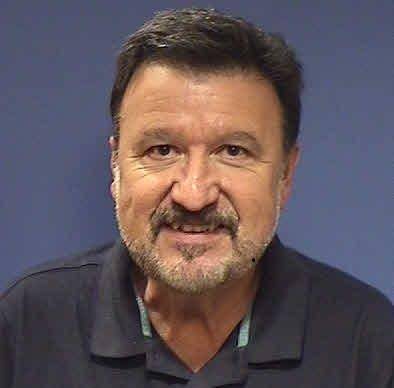
BIO 215 Ecology
James Dunn
Professor
Biology Department
3440j KHS
[email protected]
(616) 331-3439
Course description
Ecologists study how nature functions. Students will explore emergent properties of natural systems at scales ranging from individuals to ecosystems, and study the application of ecological principles to environmental problems caused by global climate change and other anthropogenic disturbances.
Water connections it will explore
We explore the ecological functioning of streams and lakes in both lecture and lab. In lab students investigate the water quality of local rural and urban streams by taking in-stream measurements of environmental factors like oxygen, temperature and flow and biological measurements of the biodiversity of the invertebrates. From these we can calculate the ecological quality of these stream and determine which stream is most impact by human influences.
Term or terms your course will be offered
Summer 2019, Fall 2019, Summer 2020, Fall 2020
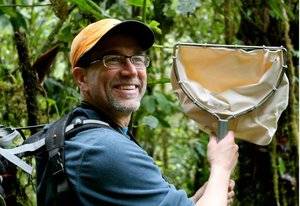
BIO 450 Stream Ecology
Eric Snyder
Professor
Biology Department
3390e KHS
[email protected]
(616) 331-2417
Course description
Examines the structure and function of stream ecosystems, with emphasis on the physical, chemical, and biological factors that influence flowing-water habitats. Laboratory focuses on the methods of stream ecology, including collection and analysis of physical, chemical, and biological data. Field work emphasizes local stream ecosystems.
Water connections it will explore
We explore and evaluate local stream and river systems to understand ecological structure and function in these unique ecosystems. This serves as a starting point for informed management.
Term or terms course will be offered
Fall 2020
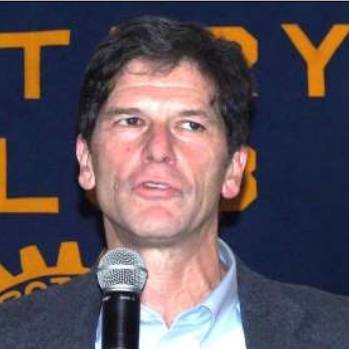
BIO 651 Emerging Issues in Water Resources
Alan Steinman
Professor
Robert B. Annis Water Resources Institute
Lake Michigan Center (Muskegon) 114
[email protected]
(616) 331-3749
Course description
This course takes a multi-disciplinary perspective regarding the most relevant issues facing the planet's water resources, with a strong emphasis on our own Great Lakes. The course objectives include the following:
- provide an overview of the emerging issues in water resources
- place the issues in a multidisciplinary perspective, providing a variety of viewpoints regarding the nature of these problems and possible solutions
- discuss current literature regarding water resources
Water connections it will explore
The most pressing water resource-related issues facing the planet today will be discussed and analyzed. Particular emphasis will be placed on analyzing these problems from a variety of perspectives, including environmental, economic, societal, and political.
Term or terms course will be offered
Fall of even-numbered years

DAN 311 Modern Dance Technique
Hannah Seidel
Assistant Professor
Dance Program
1605 PAC
(616) 331-3487
DAN 311
Course description
Advanced study and investigation of choreography. Course will focus on developing choreographic principles, devices and inspirations through structured exercises in human movement. Technical theatre production practices that enhance and further develop choreographic ideas will also be studied
Water connections it will explore
Each student in this course will conceive and create a multimedia dance work using water as a theme as well as a prop/presence in the work.
Term or terms course will be offered
Fall 2019, Fall 2020
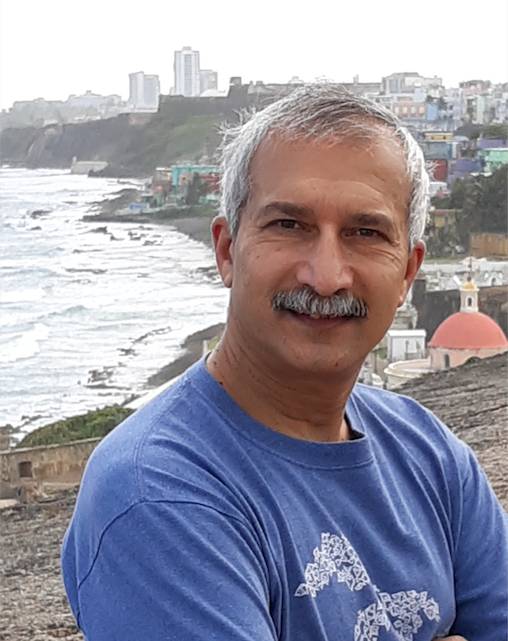
ENS 310 How the Biosphere Works
Bopi Biddanda
Professor
Robert B. Annis Water Resources Institute
226 LMC
[email protected]
(616) 331-3978
Course description
A forum for learning about the evolution, dynamics and change in Earth's Biosphere, "How the Biosphere Works" will collaboratively explore the complex interplay between and among the major components of the Earth System and people for better understanding modern-day issues such as Global Change and Sustainability.
Water connections it will explore
Earth is a water planet. The global water cycle is fundamental to both the structure and function of the biosphere. Hence, the focus on the role of water in shaping our biosphere will continue throughout the course.
Term or terms course will be offered
Fall 2020
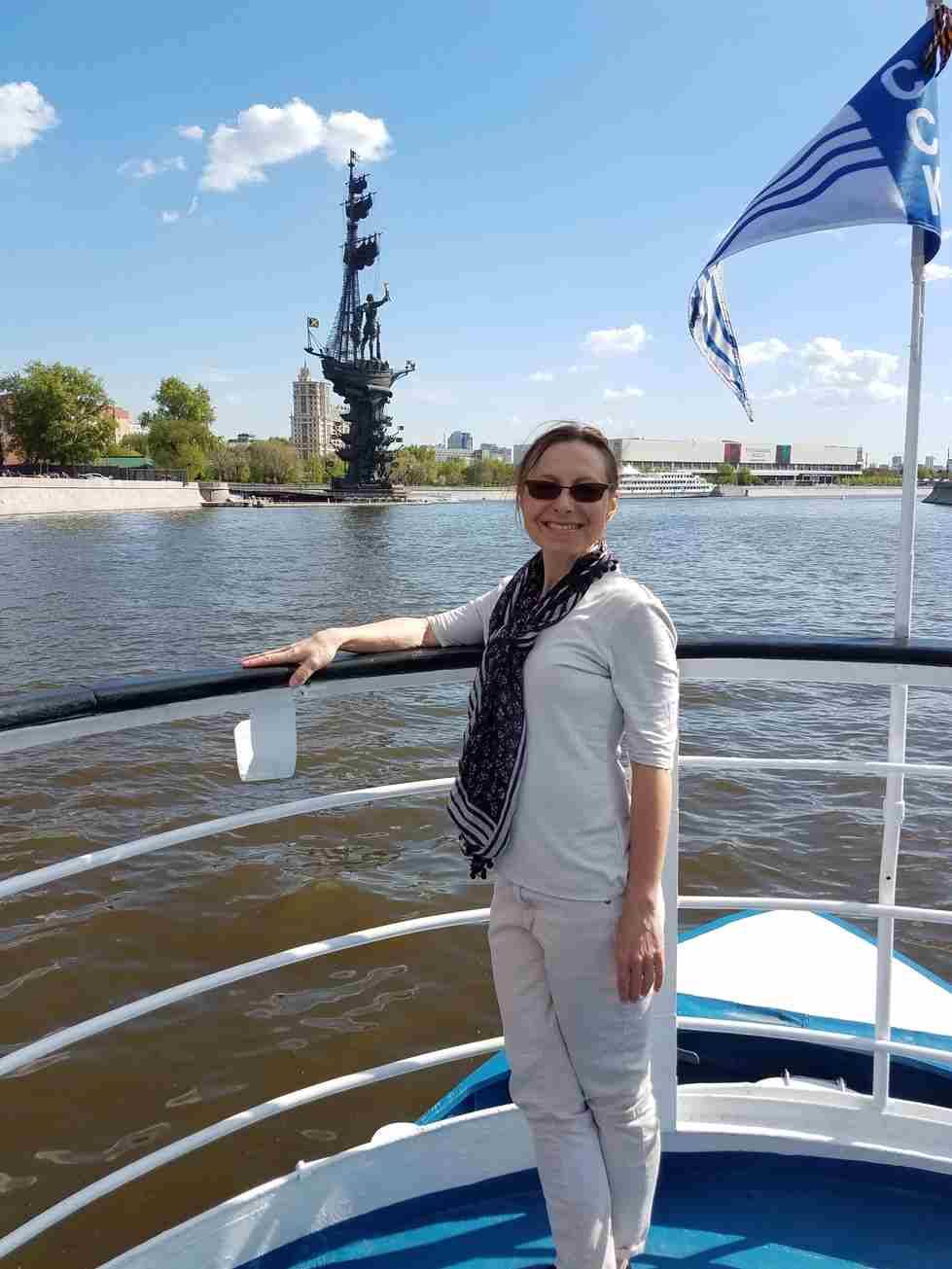
GPY 100 Physical and Environmental Geography
Elena Lioubimtseva
Professor
Geography and Sustainable Planning Department
Mackinac Hall B4-202
[email protected]
(616) 331-2874
Course description
GPY100 explores the spatial patterns of weather and climate, landforms, vegetation, soils, and water resources, and their changes, interactions, and impacts on human life and society. Designed to increase awareness of the physical environment, geographic patterns of human environmental interactions, and the interrelationships of natural phenomena.
Water connections it will explore
Hydrosphere, water resources, and aquatic ecosystems are an important integral part of this course. GPY 100 is an exploration of environmental systems including atmosphere, hydrosphere, biosphere, and lithosphere. Water is a part of each of them and connects them all through the hydrological cycle. Every unit in GPY100 addresses various aspects of water, e.g. precipitation, clouds, watersheds, rivers and streams, oceans, ice caps, aquatic and terrestrial flora and fauna, water use, water pollution, etc. Other closely related topics covered in this course include climate change, sea-level rise, deforestation, and soils degradation and management.
Term or terms course will be offered
GPY 100 is offered every semester: Fall, Winter and Spring/Summer.
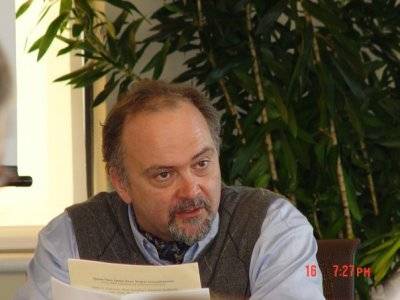
GPY 312 Urban and Regional Environmental Planning
Jeroen Wagendorp
Associate Professor
Geography and Sustainable Planning Department
B-4-201 Mackinac Hall
[email protected]
(616) 331-8672
Course description
An introduction to the urban planning strategies that help towns and cities to preserve, restore, and even capitalize on their natural resources. This course investigates threats to clean air, water, and healthy ecosystems in our communities and examines solutions in the form of governmental policies, green designs, and urban inventiveness. Offered fall semesters
Describe the water connections it will explore
The sustainable planning of any human land use developments at any scale, and any concentration, centers around all aspects of water: surface and groundwater, engineered water, drinking water, waste water, etc.
Term or terms course will be offered
Fall 2019, Fall 2020

HSC 201: The Scientific Revolution
Course description
For some historians, the scientific innovations that emerged between 1450 and 1800, taken together, constitute a Scientific Revolution because they transformed the way the western world thinks about nature, humankind, and the role (or existence) of a higher power. Others disagree. Over the course of the semester, we will explore the question of how the scientists of the early modern era understood the scientific enterprise and how their worked shaped modern scientific practices.
Water connections it will explore
The course explores the emergence of the modern scientific methods. Topics include the understanding of elements and humors, the building of aqueducts and infrastructure, the relationship between the environment and health, and the emergence of analytical chemistry. Students also examine the impact of navigation technology and overseas exploration on the world of science.
Term or terms course will be offered
Fall 2019, Fall 2020, Winter 2021

HST 370: History of Medicine and Health
Carolyn Shapiro-Shapin
Professor
History Department
MAK D-1-220
(616) 331-3445
HST 370: History of Medicine and Health
Course description
Disease is a fundamental part of the human experience. So too are the desires to heal the ailing, understand the source of a malady, and protect society from illness. The specifics of environment, disease classification, healing practices and medical systems, however, vary greatly with time and place. This course offers an interdisciplinary exploration of the diverse ways that western societies from the ancient world to the modern era have defined health and disease, provided health care, managed the environment, and sought to prevent illness.
Water connections it will explore
This course examines the relationship between health and the environment from ancient times to the present. Topics include the recognition of the importance of clean water to good health, the dangers of polluted/contaminated water , and efforts to provide people with potable water.
Term or terms course will be offered
Fall 2019, Fall 2020, Winter 2021
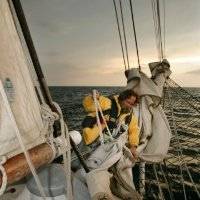
HTM 368 Geo-Tourism
Mark Gleason, PhD
Assistant Professor
Hospitality & Tourism Management Department
284C Devos Center
[email protected]
(616) 331-8828
HTM 368 Geo-Tourism
Course description
The study of Geo-Tourism refers to tourism that sustains or enhances the geographic character of a place. Topics include: community development, land use and planning, conservation of resources, tourist satisfaction and marketing, with the purpose of sustaining or enhancing the environment, culture, aesthetics, heritage, and the well-being of a place�s residents.
This course will have three emphasis areas of study. As a class we will review and decide on: ONE, the sustainability of Adult Tourism, TWO, the ethics of using people and animals by Tourism, and THREE the impacts of climate change on Tourism.
Water connections it will explore
One third of the semester is spent on the impacts of Climate Change on tourism. Many of those impacts involve water resources and how they will change tourism activities and locations.
Term or terms course will be offered
This Gen Ed class is instructed both Fall and Winter semesters as well as on the study abroad course in Costa Rica every Spring.

IDS 350 Civil Discourse - Great Lakes Water: Global wonder. Global Warming. Civil conversations on climate change.
Elizabeth Arnold
Associate Professor
Anthropology
LMH 225
[email protected]
(616) 331-8936
Course description
IDS 350 familiarizes students with communication tools of civil discourse. Students analyze the role of discourse in solving social problems and learn dialogic strategies for constructively engaging with diverse perspectives. Using the civil discourse skills of reasoning and respect, students collaborate with people of divergent views. Here in MI and globally, there are divergent views on climate change. This semester, we will specifically focus on the topic of water within the context of climate change.
Water connections it will explore
Water connections within the Great Lakes region and globally.
Term or terms course will be offered
Fall 2019 and Fall 2020

PH 520: Environmental and Occupational Health
Azizur R. Molla, PhD, MPH
Associate Professor, Public Health
Chair, Global Health Taskforce
College of Health Professions
Grand Valley State University
203N RFH, 500 Lafayette NE
Grand Rapids, MI 49503
(616) 331-8934
[email protected]
(616) 331-8934
PH 520: Environmental and Occupational Health
Course description
Presents basic concepts of environmental health and occupational health. Students will explore the biological, chemical, and physical factors from the environment (community and occupational) that impact the health of the public at a global and local level. Topics covered include air and water quality and industrial hygiene. Course offered winter semester.
Water connections it will explore
Visit a community level environmental space Like Michigan; identify and describe environmental agents that are polluting lake water. Discuss the environmental health concerns of polluted lake water. Recommend strategies to address the problem using Logic model.
Specific tasks:
1. Each group to pick a specific portion of MI lake;
2. Decide what exactly you want to observe & where
3. Decide different time slot that each of you can collect more observational data from your selected place(s).
4. List and describe environmental/occupational factors that each of you think may cause health threats/disease in your selected areas.
5. Identify what environmental agents in that area polluting lake water;..
Term or terms course will be offered
Winter 2020; Winter 2021, Winter 2022 etc.

PLS/ENS 303: Introduction to Environmental Policy
Laura Schneider
Associate Professor
Political Science Department
ASH 1124
[email protected]
(616) 331-8988
PLS/ENS 303: Introduction to Environmental Policy
Course description
This course examines the decision-making processes to cope with modern environmental problems. The course focuses on both domestic and international environmental issues with special attention to interests, ideas, and institutions. After starting with an introduction to the current state of our environment, the public policy process, and the bureaucracy we will spend the remainder of the course covering major environmental and policy concerns such as, air, water, toxic pollution, and energy. Cross-listed with ENS 303. Part of the Sustainability Issue. Offered fall and winter semesters. Prerequisite: Junior standing.
Water connections it will explore
Students learn about Clean Water Act and Safe Drinking Water Act by understanding why the policies were created and how they has changed over time. We also talk extensively about water as a sustainability issue and how we are pushing the "planetary boundary" on fresh water resources as a result of our globally unsustainable practices. Last, we discuss water as it relates to agricultural practices.
Term or terms course will be offered
Fall 2019; Winter 2020; Fall 2020; Winter 2021
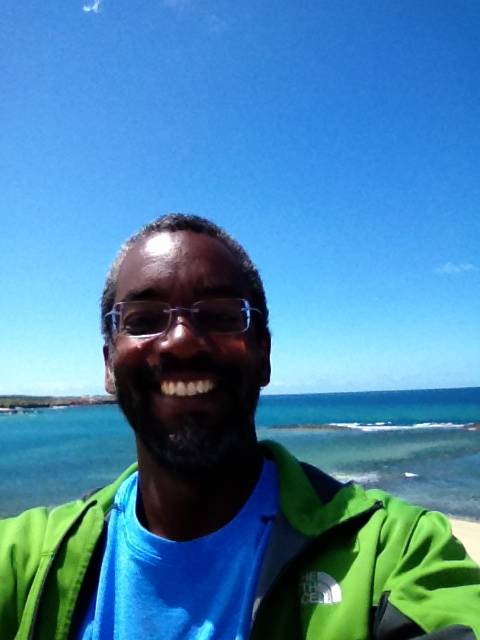
PSY 349 Psychology Applied to Media
Eaaron Henderson-King
Associate Professor
Psychology Department
2206 ASH
[email protected]
(616) 331-2938
Course description
The course examines the psychology behind the relationship between the individual and the media. We explore whether and how the media influences people's perceptions of themselves, others, and the world in which they live. Yet, the relationship between the media and its audience is by no means unidirectional, the audience has a profound effect on the media. Consequently, we will also discuss how people influence what is presented in the media.
Water connections it will explore
One aspect of the course will be a project examining how the media reported on one fallout of the Flint water crisis: the reliance on bottled water. Students will examine how the reporting, or lack thereof, influenced people's awareness of, and concerns regarding, the use and disposal of non-reusable water bottles.
Term or terms course will be offered
Fall 2019 and Fall 2020
